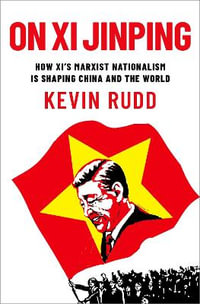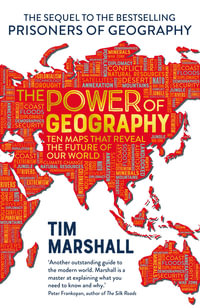
At a Glance
330 Pages
24.41 x 16.99 x 1.91
Hardcover
RRP $284.00
$224.50
21%OFF
or 4 interest-free payments of $56.13 with
orAims to ship in 7 to 10 business days
Industry Reviews
'There is no longer war, there is only digital war. Merrin convincingly implicates an astonishing array of actors as participant in contemporary conflicts: this is war without bystanders. And in an era in which hacking, drones, robotics, artificial intelligence, trolls and bots have destabilised the already shaky concept of war, Merrin brings urgently needed order, clarity and vision. His analysis is sharp, compelling and refreshingly uncluttered. Students and scholars of Politics, IR, Media, Communication, Journalism, War and Security Studies now have a fabulous core text, but historians of contemporary warfare will also embrace this new guide for its bold imaginary, its vivid narration. Some will resist Digital War, for visionaries tend to upset the canon. But after Merrin, the field of war and media is renamed, reimagined, revitalised.'--Andrew Hoskins, University of Glasgow
'Within the span of roughly two decades, we have seen remarkable transformations in how wars are fought and how global publics watch these wars. William Merrin provides an excellent guide to this evolution, analyzing topics ranging from expanded concepts of "journalism" to newly created battlefield robotics. Academics, policymakers, and the broader public face a daunting task in keeping up with the changing dynamics of conflict. Merrin understands this and helps us keep pace. Digital War is the right book at the right time.'--Philip Seib,University of Southern California, USA
'Merrin has redefined the field of war and media. He connects traditional concerns about leaks, legitimacy and propaganda to the wearables, drones and robots through which war is now waged. The result is war perceived as if through fractals -- never-ending patterns of complexity and recursion, where the origin, cause or effect is never quite visible. Merrin's fascinating story takes us from war fought through top-down information control in the 1990s to today's participatory wars. But the fog of war is not lifted. Merrin explains how the information glut of participatory war keeps us in the dark. War continues to bring death and suffering, but our perception of that reality is more fragmented and cloudy than ever.'--Ben O'Loughlin, Royal Holloway, University of London
ISBN: 9781138899865
ISBN-10: 1138899860
Published: 31st July 2018
Format: Hardcover
Language: English
Number of Pages: 330
Audience: Professional and Scholarly
Publisher: Taylor & Francis Ltd
Country of Publication: GB
Dimensions (cm): 24.41 x 16.99 x 1.91
Weight (kg): 0.73
Shipping
| Standard Shipping | Express Shipping | |
|---|---|---|
| Metro postcodes: | $9.99 | $14.95 |
| Regional postcodes: | $9.99 | $14.95 |
| Rural postcodes: | $9.99 | $14.95 |
How to return your order
At Booktopia, we offer hassle-free returns in accordance with our returns policy. If you wish to return an item, please get in touch with Booktopia Customer Care.
Additional postage charges may be applicable.
Defective items
If there is a problem with any of the items received for your order then the Booktopia Customer Care team is ready to assist you.
For more info please visit our Help Centre.
You Can Find This Book In

Resisting Inter-Ethnic Violence
Community Approaches to Conflict Transformation in Croatia and Bosnia-Herzegovina
Hardcover
RRP $284.00
$200.95
OFF

Let's Change the World
How to Work within International Development Organizations to Make a Difference
Hardcover
RRP $57.99
$44.75
OFF

US Hegemony, American Troops Abroad and Burden-Sharing
West Europe and East Asia during and after the Cold War
Hardcover
RRP $284.00
$200.95
OFF




















